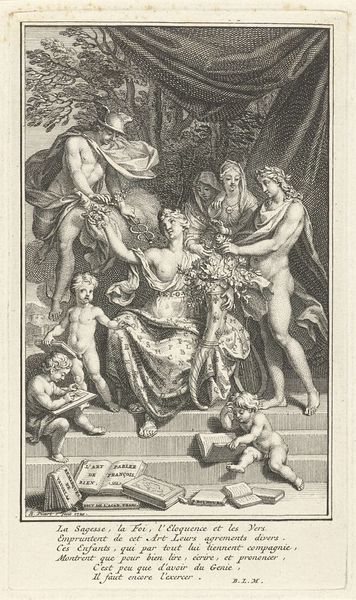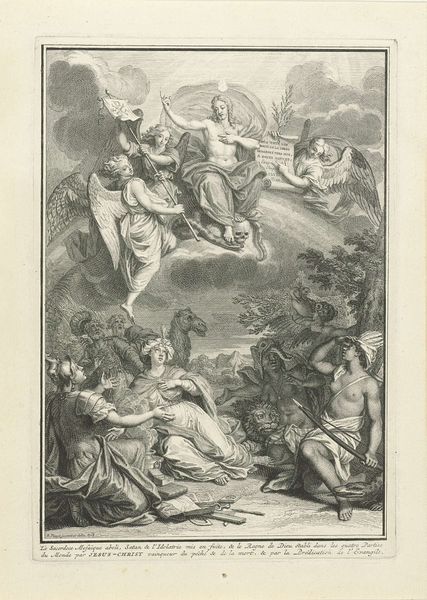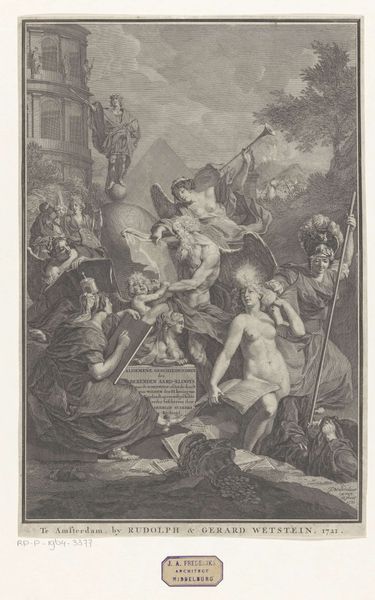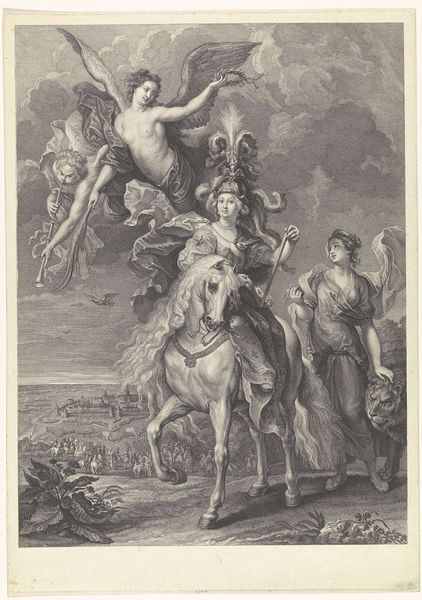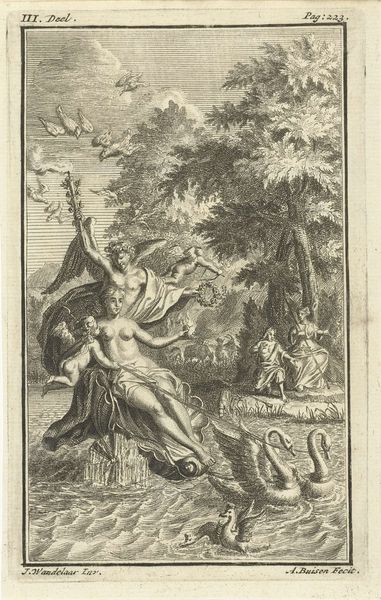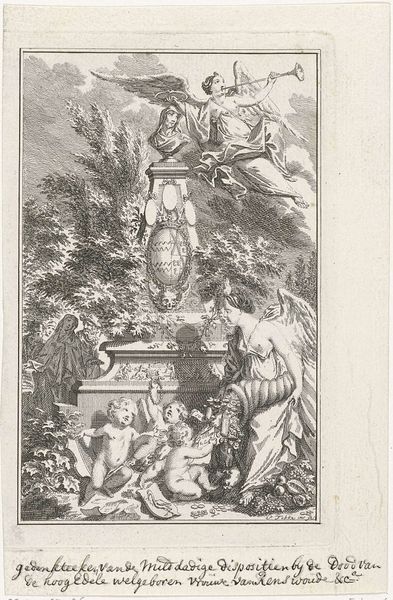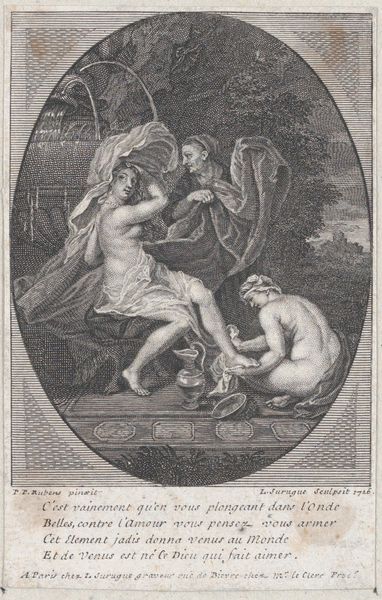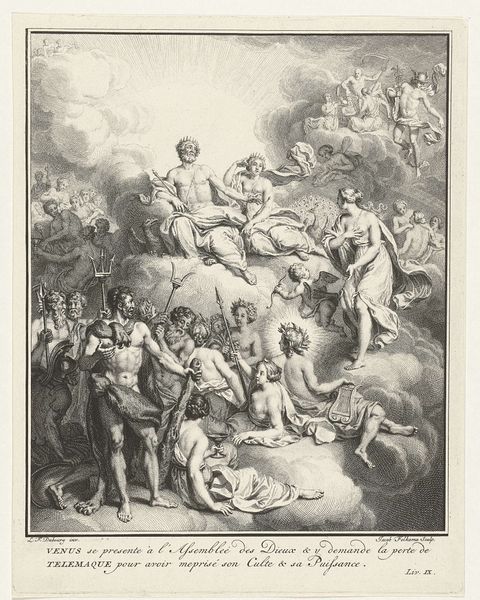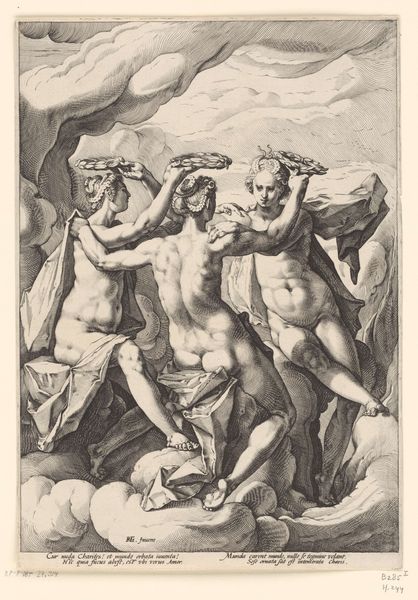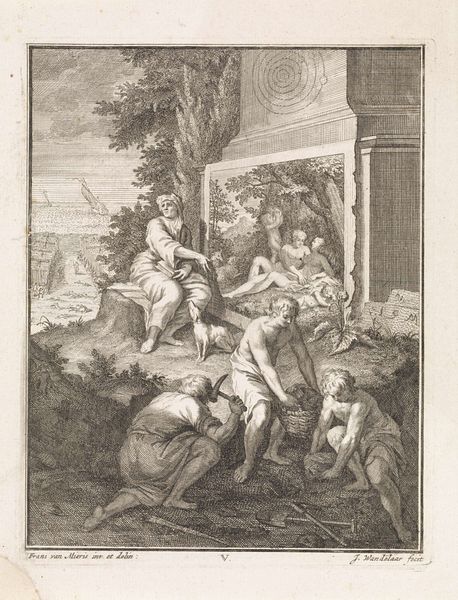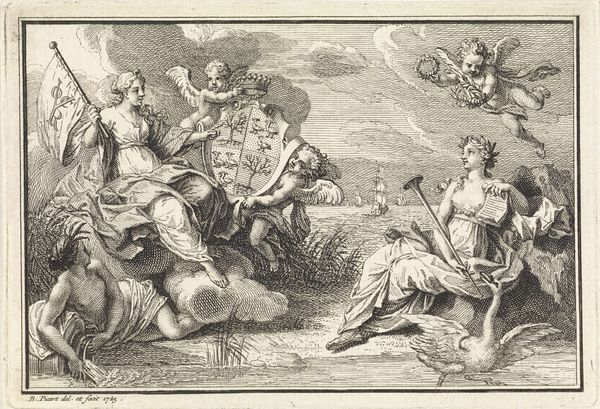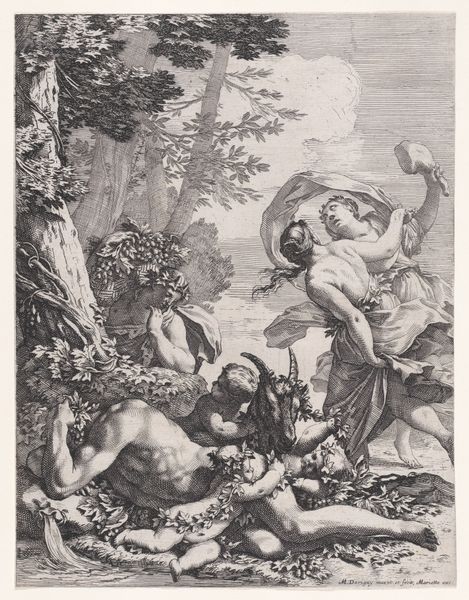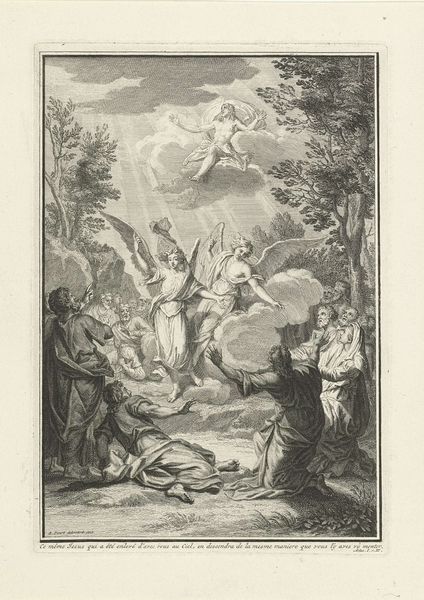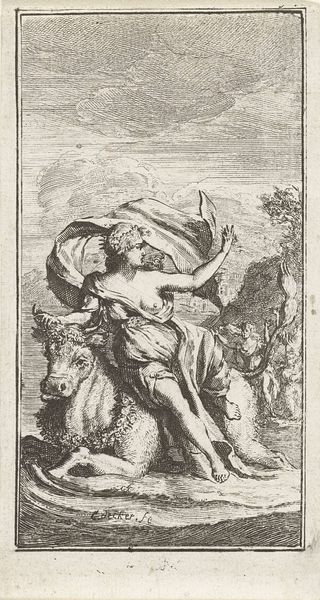
engraving
#
allegory
#
baroque
#
pen illustration
#
figuration
#
pen-ink sketch
#
line
#
pen work
#
history-painting
#
engraving
Dimensions: height 170 mm, width 129 mm
Copyright: Rijks Museum: Open Domain
This is a print made in Amsterdam in 1726 by an anonymous artist, realized with engraving, a process that demands precision and care. Engraving involves using a tool called a burin to carve lines directly into a metal plate, which is then inked and printed. The result here is a composition of striking clarity, where every line contributes to the overall image. Look closely, and you’ll see how the artist varied the density and direction of the lines to create depth, texture, and shadow. This print would have required careful preparation, skillful execution, and an understanding of the printing process. The level of detail and refinement speak to the artist's technical mastery. The labor-intensive nature of engraving also speaks to a time before industrialization, when art and craft were deeply intertwined, reflecting broader social and economic structures. The beauty we see here is inseparable from the process that brought it into being. By appreciating the artistry involved, we move beyond mere aesthetics, seeing the print as a product of skilled labor and cultural values.
Comments
No comments
Be the first to comment and join the conversation on the ultimate creative platform.
